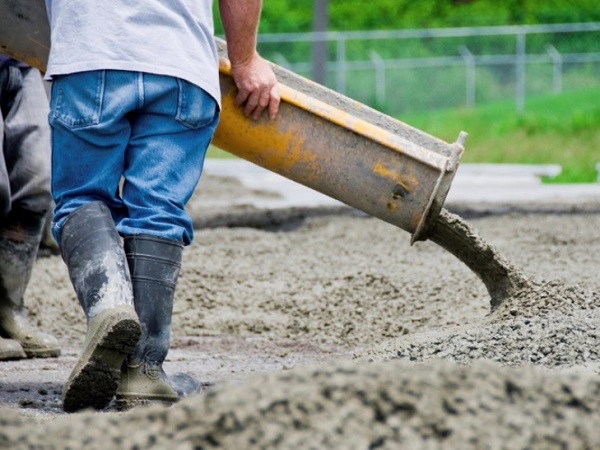Whenever you have a construction project, it’s important to hire the right contractor. This includes concrete contractors when the project involves concrete, regardless of the project. It doesn’t matter whether you are interested in a new patio, driveway, walkway or any other. Hiring the right concrete contractor can make the difference between ending up with a finished product that you are proud of or regret.

Hiring a concrete contractor involves more than an internet search and gathering a few estimates. If you really want to end up with a final product that is not only attractive, but within your budget and durable for a long time, follow these tips.
1. Do Your Homework
Before you consider hiring anyone, make sure you do your homework. An internet search will usually give you a list of potential contractors you can start with, but there are other sources as well. These include asking friends and family members for contractors they have been happy with and have a reputation for quality work.
2. Look for Experience
A good concrete contractor available at frasercon.com will usually have lots of experience in his work. Try to find one that has been in business for several years and demonstrates stability and reliability. An experienced contractor will usually be there for their clients when they have questions or want to make suggestions. Likewise, a good contractor will offer suggestions for making your project better such as using stamps to make a job more attractive.
3. Verify Licensing and Insurance
Two things that are important to make sure a contractor has are a license and insurance. A reputable contractor has both. Licensing or registration protects a homeowner by verifying that a contractor meets educational and insurance standards. Homeowners who hire an unlicensed and uninsured contractor may find themselves with little recourse if a job is not completed or not completed to code standards.
4. Ask for References
Before you hire any contractor, ask them for references, then contact those references to learn about the contractor and their work. You might want to ask about the type of project they had completed, how long it took them to finish, how involved the contractor was in the work, and finally, their overall impression of the contractor and how the job turned out.
5. Compare Prices
Most contractors will be happy to provide you with a quote for a project. When you receive that quote, make sure it covers all the work you want to be done. Be careful about choosing a contractor on price alone, especially if there is one that bids significantly lower than others. Contractors who low-ball a job are probably cutting corners just to get the work or will provide low-quality work. Beware of your job suffering just because you wanted to save some money.
6. Visit a Worksite
If possible, try visiting the worksite of past projects. If there’s a good thing about this step it’s the fact that bad workmanship is usually easy to spot. If you can visit a site of work that is similar to yours, you can get a good idea of how well your project will be done.
7. Consider Your Interactions
You can often tell a lot about someone by your interactions with them. If a contractor is friendly and willing to spend time with you to explain what they are doing, answers questions, and returns phone calls in a timely manner, chances are good they are a good business person and are willing to be dedicated to doing a good job. If they act like you are a nuisance, or are stand-offish about something, that’s a warning sign and you need to look elsewhere.
Picking the right contractor for your job is essential to ending up with a good final project. When you are comfortable with all the steps, from choosing a prospective contractor to the terms of your contract, you will probably be making the best choice.



Your advice to gather references from potential concrete contractors and then contact them in order to learn about the project they worked on. I’d imagine that it would probably help to write down potential questions fro the referrals beforehand. You could also write down their information in order to more easily compare the different referrals and contractors to figure out which one would be best to hire.
We’ll remember that and try to come up with such kind of post for you.